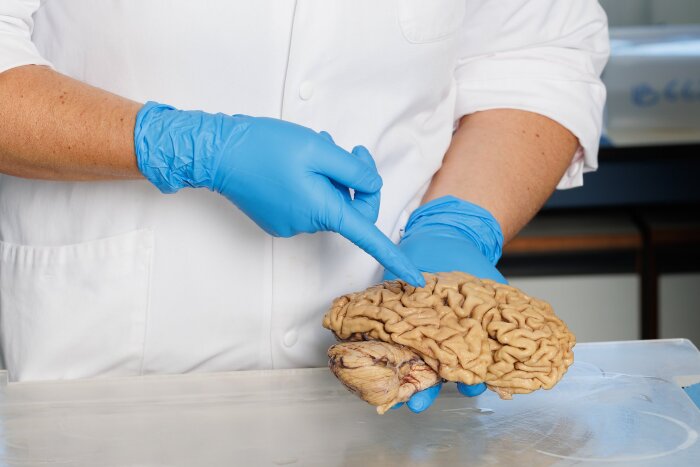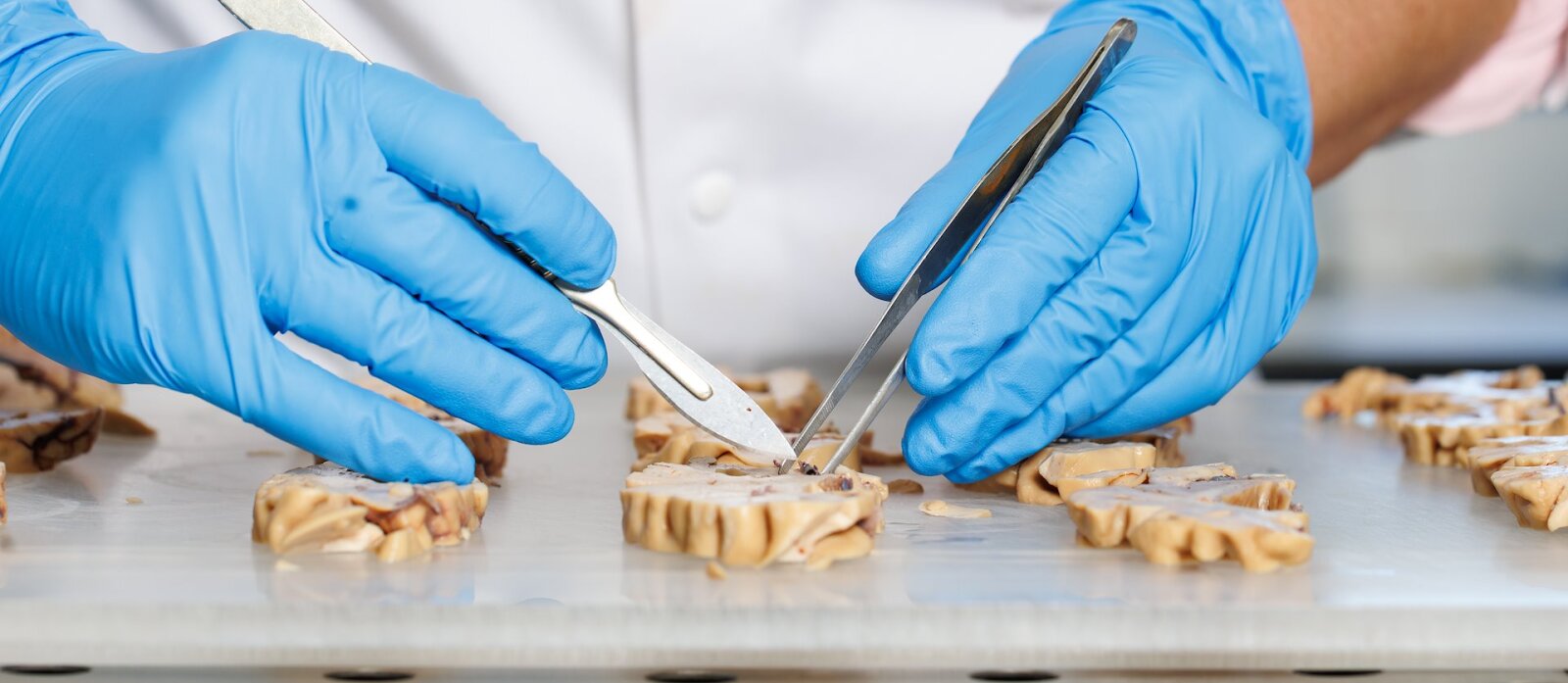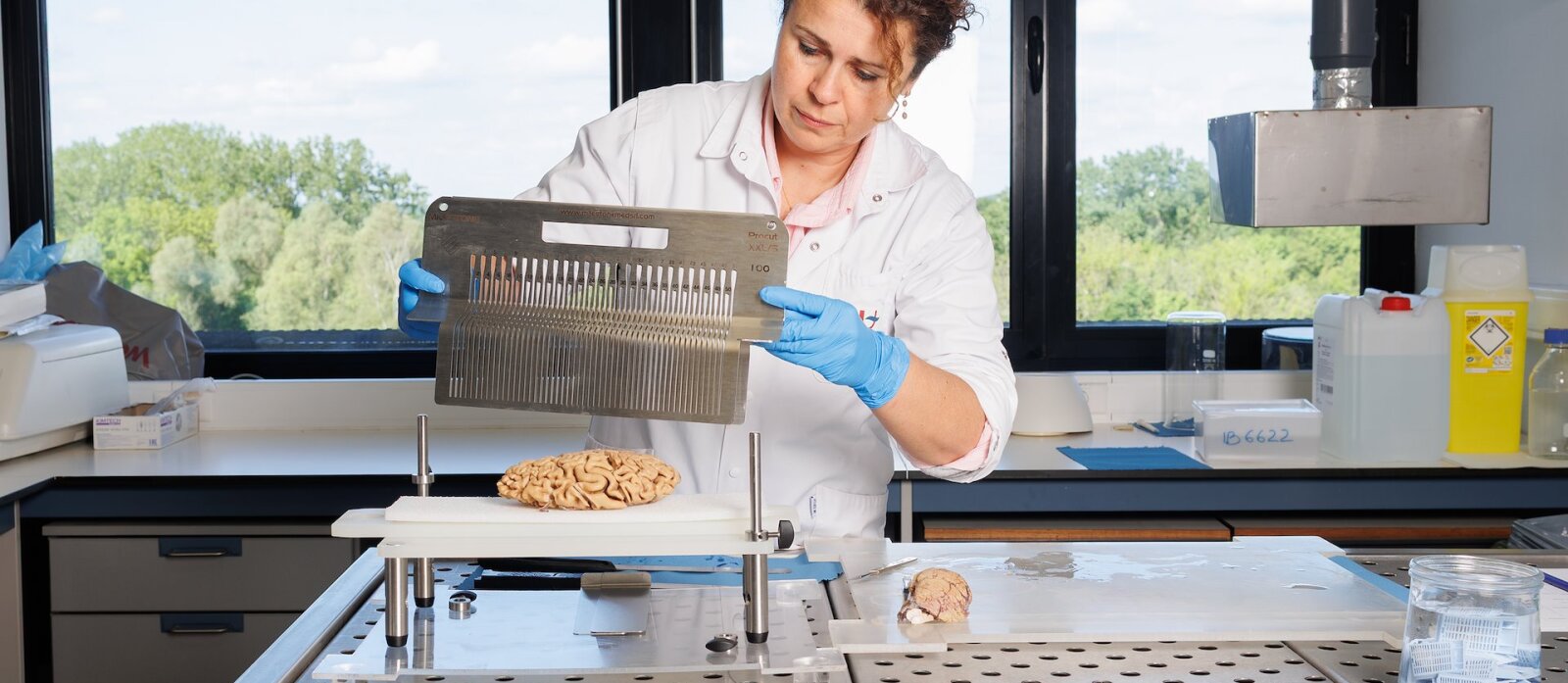For nearly a century, the Institute Born-Bunge (IBB) has been at the forefront of neuropathology, bringing together research, diagnostics, and real-world impact to advance our understanding of these diseases. With one of Europe’s largest and most historically significant biobanks, state-of-the-art expertise, and deep research collaborations, IBB provides the essential resources needed to unravel disease mechanisms, refine treatments, and improve patient outcomes.
Long before diseases like Alzheimer’s became a global priority, IBB’s founders recognized their significance and took action. In the early 1930s, many neurodegenerative diseases were barely described, let alone understood—yet IBB was already committed to pushing the field forward, integrating clinical, neuropathological, biochemical and genetic data of patients. Today, IBB’s decades of expertise and unparalleled resources put it in pole position to drive breakthroughs.
-
 Brain dissection
Brain dissection -
 Research
Research
We create real-world impact
Institute Born-Bunge’s researchers operate at the intersection of neurodiagnostics, neuropathology and translational neurosciences.
Examples of ways in which we move the needle include:
Providing much needed answers
Institute Born-Bunge is Belgium’s only facility offering diagnostics for Creutzfeldt-Jakob Disease, a rare and fatal neurodegenerative disorder. By providing definitive answers to families and advancing research into its mechanisms, our scientists play a critical role in both patient care and scientific discovery.
We also specialize in molecular diagnostics of Alzheimer’s disease.
Performing research at the frontlines
In collaboration with our partners, Institute Born-Bunge supports cutting-edge Parkinson’s research by analyzing brain tissue during deep brain stimulation surgeries. This real-time approach helps refine treatments and improve patient outcomes. IBB also partners with researchers to investigate somatic mutations in epilepsy, analyzing brain tissue collected during surgeries. These studies—made possible by our biobank and diagnostic support—shed new light on the genetic and molecular underpinnings of epilepsy, opening the door to more targeted therapies.
Connecting past, present, and future
With a biobank spanning nearly 100 years, IBB offers a rare window into neurodegenerative diseases across generations. Our rich dataset allows researchers to explore how genetics, environmental factors, and lifestyle contribute to disease development—paving the way for transformative discoveries.
What unites these achievements is their collaborative character. Since the very beginning, we work with scientists and clinicians, and rely on patients and donors to move this important work forward.

